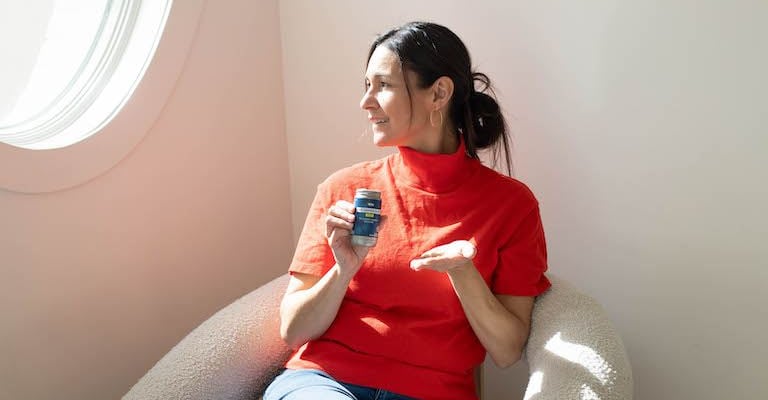Sunlight's Impact on the Immune System


Written by: Dr. Elena Enioutina of the Health Sciences Advisory Board
With more sunny days, many of us think about going on vacation or spending weekends outdoors hiking and playing games with the kids.
Since we are The Immune System Company®, we want to tell you how sunlight affects your immune system. Sunlight can affect your immune system in a positive or negative way. It all depends on how much sunlight you get.
Sunlight, specifically the ultraviolet light that makes you tan, stimulates the natural production of vitamin D3 in your skin.1 Vitamin D3 supports bone health and muscle development. Low levels of vitamin D3 may increase the risk of bone fractures, especially in older adults.2 Vitamin D3 also helps preserve muscle fiber strength and supports less falls in older adults.3


Did you know that Vitamin D3 can help regulate your immune system?
Low doses of vitamin D3 stimulate the production of IL-4, IL-5, and transforming growth factor beta (TGFb).4 These molecules are responsible for repairing damaged tissues and are involved in the generation of protective antibodies present in your saliva, intestinal, and nasal mucus.
Vitamin D3 also affects the function of innate immune cells: dendritic cells and macrophages. Innate immunity is the first line of immune defense against microbial infections. In short, Vitamin D3 helps boost your immune system!
Moderate to Low Doses of Ultraviolet (UV) Radiation Support Immune Surveillance


A group of scientists reported that moderate to low doses of UVR from the sun increases immune surveillance5,6 (where the body identifies harmful cells). A moderate to low dose of UVR is a dose that does not make your skin red after sitting in the sun without sunscreen. These low doses of UVR increase the number of cytotoxic T cells (cells that kill infected cells), T helper cells (cells that support an immune response), and antigen-presenting dendritic cells (cells that process molecules and present them to T cells). Even more important, the low doses of radiation decrease the number of M2 macrophages, which suppress good immunity. Moderate to low doses of UV Radiation increases your immune system cells and their effectiveness!


Unfortunately, there is a dark side to sunlight exposure. Skin sites like the hands and face are often more exposed to sunlight and are prone to photoaging.7 People who spend a lot of time in the sun could develop signs of photoaging such as skin dryness, dark spots, wrinkling, and decreased elasticity. The factors responsible for skin photoaging are immune system suppression and excessive inflammation. The anatomic structure of photoaged skin changes: the epidermal thickness increases and dystrophic elastin and disorganized collagen accumulate.
Conclusion
In summary, sunlight exposure can help your body produce vitamin D3 naturally. Vitamin D3 supports your bones, muscles, and immune system. The “low doses” of sunlight may help your immune system identify and get rid of harmful cells. However, spending a long time in the sun could damage your skin and suppress your immune system.
Tips to optimize your vitamin D3 intake and boost immune health:
Expose your arms, hands, and face to the sun for approximately 5–30 minutes daily or twice a week to get your recommended dose of vitamin D3.8
You can take adequate levels of vitamin D3 by using supplements. In a recent U.S study, nearly half of adults had a vitamin D deficiency (41.6%).9 Your doctor may recommend taking vitamin D3 tablets/capsules. Current recommendations are 600–800 IU a day.
